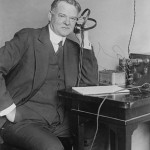Miller’s Unanswered Questions and the Future of the Eighth Amendment
Since it was handed down late last month, the Supreme Court’s decision in Miller v. Alabama has deservedly received much attention from lawyers and nonlawyers alike. The Court held, on Eighth Amendment grounds, that juveniles may not be sentenced to mandatory terms of life imprisonment without parole; “JLWOP” can only be imposed by a judge who has discretion to consider the juvenile’s “youth and attendant circumstances.” (20) Miller thus nicely complements the Court’s 2010 decision in Graham v. Florida, in which the Court banned JLWOP for all offenses less severe than homicide. In Miller, the Court preserved JLWOP as a sentencing option in homicide cases, but only if certain procedural requirements are satisfied, that is, only if the sentencing judge considers “youth and attendant circumstances.”
Like Graham, Miller breaks down a doctrinal barrier between capital punishment and the lesser sentence of life without parole. In Graham, for the first time in a noncapital case, the Court used the methodology it had developed for determining whether the death penalty could be applied to particular categories of offenders, such as juveniles and the mentally retarded. Before Graham, it seemed as if there were no meaningful substantive limitations on noncapital sentences. Similarly, before Miller, there was a well-developed body of Eighth Amendment doctrine regarding the sentencing procedures that had to be followed in capital cases, but no corresponding doctrine for noncapital cases. Miller suggests that the procedural rules may now be migrating, along with the substantive limitations, into LWOP cases and perhaps beyond.
Graham and Miller may lay the foundation for a revolution in the constitutional law of sentencing. Or maybe not. It’s too early to say for sure. Perhaps this Court just has a soft spot for kids (see, for instance, last term’s decision in J.D.B. v. North Carolina.)
In any event, as the revolution or non-revolution plays out, we are likely to see the courts wrestling with many interesting questions raised by Miller. I’ll highlight a few in the remainder of this post.


